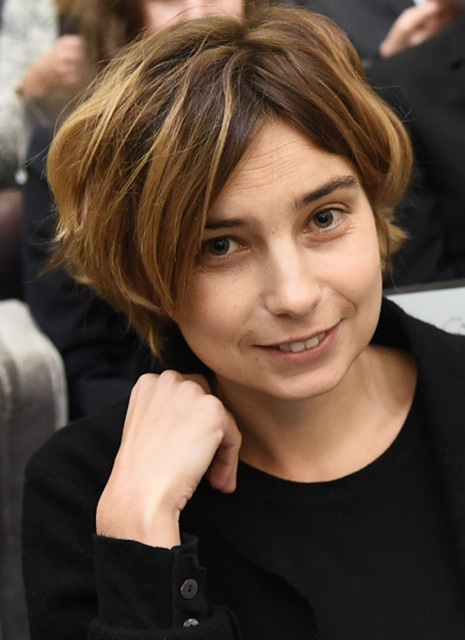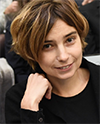Awardee of the “Grand Prix Jacques Herbrand de l’Académie des sciences” in 2014 and the bronze medal of CNRS in 2016, Aleksandra Walczak is one of the few women scientists in the field of theoretical physics applied to biology. Her portrait reveals a bright and humorous personality.

Why are you active in the field of quantitative biology?
As a physicist I am interested in quantitatively describing real life phenomena and finding the laws that govern them. Living systems challenge our current physical understanding in many ways: they involve many components, rely on noisy processes that give reproducible results, often consume energy. By figuring out these laws I hope we can build a quantitative and predictive understanding of many biological processes.
Describe the most intense moment of your career.
I hope it is still too come. Anytime someone likes my work is very special. I also felt extremely fulfilled at the end of successful summer schools I helped organize.
Which is the best idea you ever had?
To collaborate with many different people, including other theorists. It makes science fun and constantly teaches me about new topics.
Do you have a role-model or a driving force?
I have been incredibly lucky to have been influenced and mentored by many wonderful people from the early on in my career. It is a very long list of people from diverse fields. I am a true believer in collective effects.
The philosophy along which lines you lead your group?
I don’t like the idea of “my group”. I work with many great researchers at various career stages. I offer more advice to some, and take more advice from others. Its this constant interaction that makes science enjoyable to me.
Pick a paper you praise for the elegance of its demonstration.
There are a lot of papers, including a few that are not published yet that I like a lot. To propagate the idea of proposing new conceptual ideas and choose a relatively recent paper, I will mention Vergassola, Villermaux and Shraiman “‘Infotaxis’ as a strategy for searching without gradients”.
Can you shed light on the relevance of inter-disciplinarity for scientific breakthroughs?
When we study living systems, we are all natural scientists just with different approaches and toolsets, different perspectives. When you try to solve a problem, it is always useful to try from different perspectives. It’s extremely important that everyone should ask the questions they find interesting. You never know what is the right thing to do before you try to do what you find interesting, so everyone should try and then share what they learned.
Define research with just three words.
“It’s not working”.
How do you match the words beauty and science?
I would rather say interesting and aesthetically pleasing than beautiful. I have always found beauty overrated and subjective.
A piece of advice you’d like to give to the young generation of researchers?
A lot of unexpected things happen. Listen, learn, make up your own mind. And don’t be afraid to change your mind.
A book, song, poem, music or painting that you spot out and get inspiration from?
The Wallander series by Menkell and the Adamsberg series by Vargas. They both involve a lot of thinking, walking and trying to make sense of isolate facts that don’t add up. But they always put the pieces together through some painful thinking and leaps of faith that then they scrupulously verify. Ian Rankin’s Siobhan Clarke and Vargas’ Froissy add a bit of modern techniques and realism to these processes.
 Aleksandra Walczak received her PhD in physics at the University of California San Diego. After a graduate fellowship at the Kavli Institute for Theoretical Physics (UCSB), she worked on applying information theory to signal processing in small gene regulatory networks at the Princeton Center for Theoretical Science. Currently based at the École Normale Supérieure as a CNRS researcher, she studies the effects of selection on population genealogies, collective behaviour of bird flocks and statistical descriptions of the immune system. She was awarded the “Grand Prix Jacques Herbrand de l’Académie des sciences” in 2014 and the bronze medal of CNRS in 2016.
Aleksandra Walczak received her PhD in physics at the University of California San Diego. After a graduate fellowship at the Kavli Institute for Theoretical Physics (UCSB), she worked on applying information theory to signal processing in small gene regulatory networks at the Princeton Center for Theoretical Science. Currently based at the École Normale Supérieure as a CNRS researcher, she studies the effects of selection on population genealogies, collective behaviour of bird flocks and statistical descriptions of the immune system. She was awarded the “Grand Prix Jacques Herbrand de l’Académie des sciences” in 2014 and the bronze medal of CNRS in 2016.
Copyright: Département de physique / ENS – Hubert Raguet 2017 (classroom)

Leave a comment
The editors reserve the right not to publish comments or to abridge them.